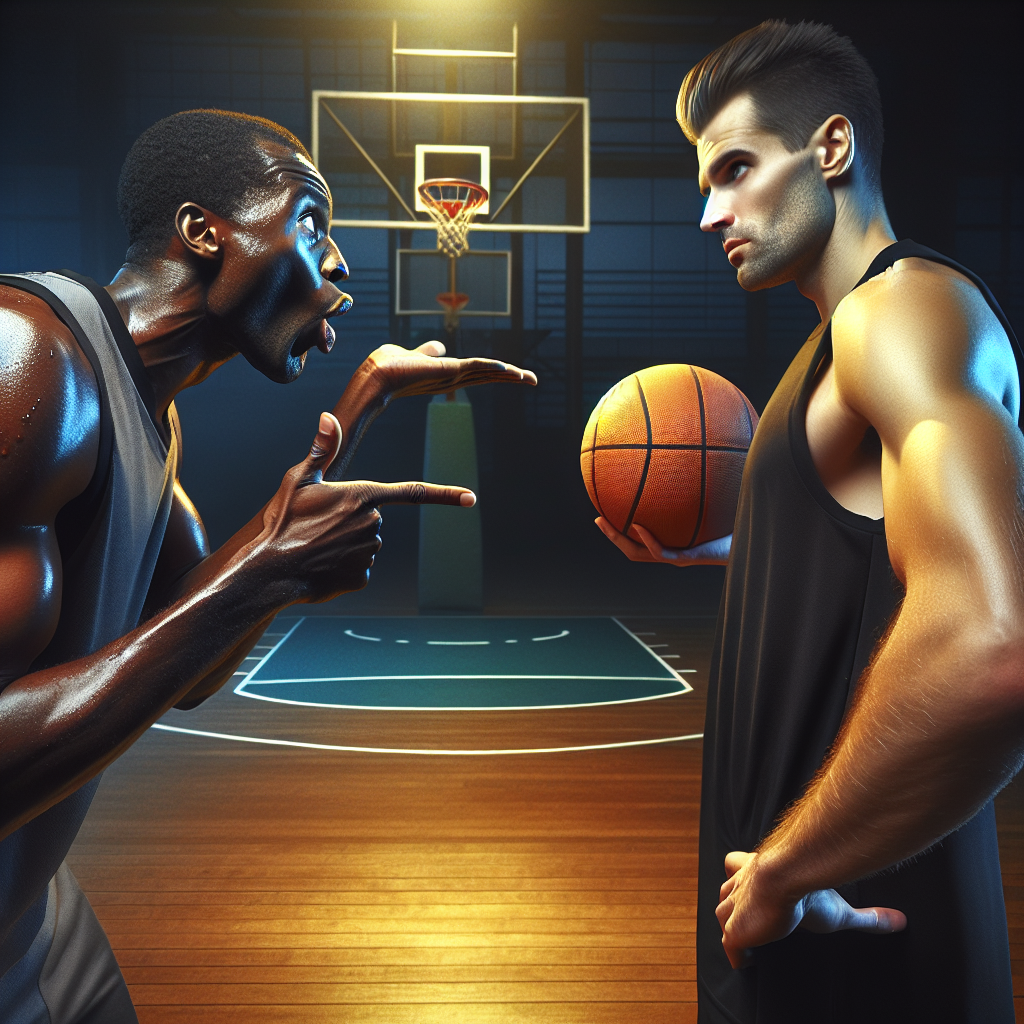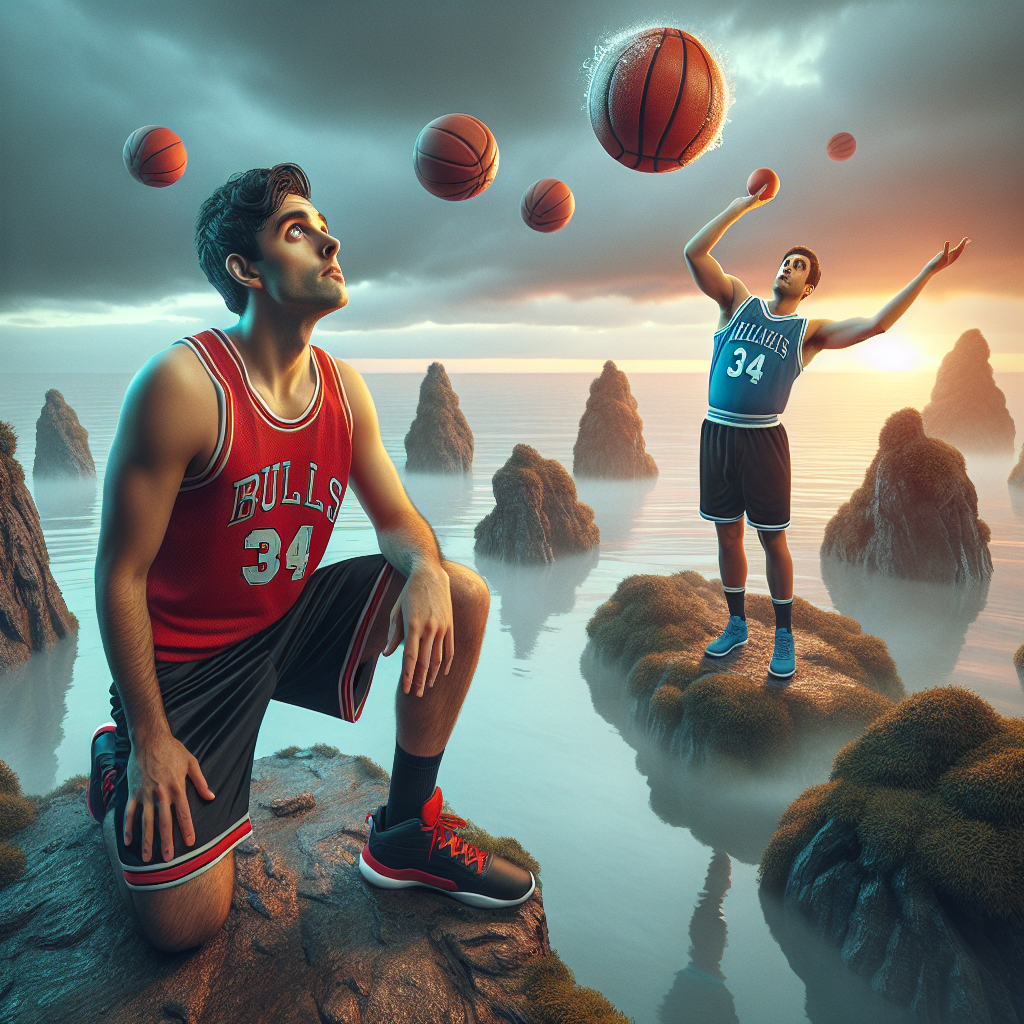Russell Westbrook mocks Rudy Gobert’s airball, but Gobert gets the last laugh

Russell Westbrook’s Taunt: A Closer Look at the On-Court Exchange with Rudy Gobert
In the high-stakes world of professional basketball, where every move is scrutinized and every play analyzed, the interactions between players often become as compelling as the game itself. Such was the case in a recent matchup when Russell Westbrook, known for his fiery competitiveness and expressive demeanor, found himself in a moment of on-court drama with Rudy Gobert. The incident unfolded when Gobert, a towering presence in the paint but not particularly known for his shooting prowess, attempted a shot from beyond the arc. The result was an airball, a miss that failed to touch the rim or backboard, and an opportunity that Westbrook seized to mock his opponent.
Westbrook’s reaction was immediate and unmistakable. With a smirk and a dismissive gesture, he made it clear that Gobert’s misfire was not going unnoticed. This kind of taunting is not uncommon in the NBA, where psychological gamesmanship can be as crucial as physical skill. Westbrook, a player who thrives on intensity and emotion, used the moment to try and gain a mental edge over Gobert and his team. However, the dynamics of basketball are such that the narrative can shift rapidly, and what seems like a definitive moment can quickly become a mere footnote in the larger story of the game.
As the game progressed, Gobert demonstrated why he is considered one of the premier defensive players in the league. With a series of pivotal blocks and rebounds, he anchored his team’s defense, effectively neutralizing Westbrook’s attempts to drive to the basket. Gobert’s performance was a testament to his resilience and focus, qualities that have earned him multiple Defensive Player of the Year awards. In this way, he managed to turn the tables on Westbrook, letting his actions speak louder than any retort he could have made in the heat of the moment.
The exchange between Westbrook and Gobert highlights the intricate interplay of skill, strategy, and psychology that defines professional basketball. While Westbrook’s mockery was a fleeting moment of levity, it underscored the competitive spirit that drives athletes to excel. Yet, Gobert’s response, characterized by composure and effectiveness on the court, serves as a reminder that in sports, as in life, actions often carry more weight than words. This incident also reflects the broader narrative of the game, where individual battles contribute to the unfolding drama of the team contest.
Moreover, this interaction between two high-profile players offers fans a glimpse into the personal rivalries and motivations that fuel the NBA’s most exciting matchups. It is these moments of personal confrontation and redemption that add depth to the spectacle of professional sports, engaging audiences beyond the final score. As the game concluded, it was clear that while Westbrook’s taunt provided a momentary spark, it was Gobert’s steadfast performance that ultimately had a more lasting impact on the outcome.
In conclusion, the on-court exchange between Russell Westbrook and Rudy Gobert serves as a microcosm of the larger dynamics at play in professional basketball. It illustrates how fleeting moments of bravado can be overshadowed by sustained excellence and how the true measure of an athlete often lies in their ability to rise above provocation and deliver when it matters most. As fans and analysts continue to dissect these interactions, they remind us of the enduring appeal of sports as a theater of human emotion and competition.
The Art of Redemption: How Rudy Gobert Turned an Airball into Victory Against Russell Westbrook

In the world of professional basketball, where every moment on the court is scrutinized and every play dissected, the interactions between players often become as memorable as the games themselves. Such was the case in a recent matchup between the Los Angeles Clippers and the Minnesota Timberwolves, where a seemingly innocuous moment turned into a narrative of redemption and triumph. During the game, Rudy Gobert, the Timberwolves’ towering center known for his defensive prowess, found himself at the free-throw line. As he released the ball, it sailed wide of the basket, resulting in an airball—a rare and embarrassing occurrence for any professional player. Russell Westbrook, the Clippers’ dynamic guard known for his fiery competitiveness and expressive demeanor, seized the opportunity to mock Gobert, gesturing and laughing in a manner that drew attention from both fans and commentators.
However, the story did not end with Westbrook’s taunt. Instead, it set the stage for a compelling tale of resilience and focus. Gobert, rather than succumbing to the embarrassment of the moment, used it as fuel to elevate his performance. Throughout the remainder of the game, he demonstrated why he is considered one of the league’s premier defenders and a formidable presence in the paint. With each block, rebound, and defensive stop, Gobert methodically shifted the momentum in favor of the Timberwolves. His ability to maintain composure and channel the negative energy into positive action exemplified the mental fortitude that separates elite athletes from their peers.
As the game progressed, Gobert’s impact became increasingly evident. His defensive efforts stifled the Clippers’ offensive strategies, forcing them to adapt and ultimately struggle to find their rhythm. Meanwhile, his teammates capitalized on the opportunities created by his defensive dominance, gradually building a lead that would prove insurmountable. In a twist of irony, the very player who had been mocked for an airball became instrumental in securing a victory for his team. This transformation from potential scapegoat to hero underscored the unpredictable nature of sports, where fortunes can change in an instant and redemption is always within reach.
The post-game narrative naturally shifted to Gobert’s performance and his ability to rise above the mockery. Analysts and fans alike praised his resilience, highlighting how he turned a moment of ridicule into a catalyst for success. This incident also served as a reminder of the psychological aspects of professional sports, where mental toughness is as crucial as physical skill. For Westbrook, the game was a lesson in humility, illustrating that in the competitive arena of the NBA, no player is immune to the vicissitudes of fortune.
In conclusion, the encounter between Russell Westbrook and Rudy Gobert during this particular game transcended the immediate spectacle of sport, offering insights into the human elements that drive athletes to excel. Gobert’s journey from an airball to a pivotal role in his team’s victory exemplifies the art of redemption, where perseverance and focus can transform adversity into triumph. As fans and players reflect on this game, it serves as a testament to the enduring spirit of competition and the ever-present possibility of turning setbacks into stepping stones toward success.
From Mockery to Mastery: Analyzing the Dynamics of the Westbrook-Gobert Rivalry
In the ever-evolving landscape of the NBA, rivalries often emerge as a captivating subplot, adding layers of intrigue to the already dynamic world of professional basketball. One such rivalry that has recently captured the attention of fans and analysts alike is the ongoing saga between Russell Westbrook and Rudy Gobert. This narrative took a particularly interesting turn when Westbrook, known for his fiery competitiveness and expressive demeanor, openly mocked Gobert for an airball during a game. However, as the events unfolded, it was Gobert who ultimately had the last laugh, showcasing the unpredictable nature of sports and the resilience of athletes.
Russell Westbrook, a player celebrated for his explosive athleticism and relentless drive, has never shied away from expressing his emotions on the court. His mockery of Gobert’s airball was emblematic of his larger-than-life persona, a moment that quickly went viral and became a talking point among fans and commentators. Westbrook’s actions, while entertaining to some, also highlighted the intense pressure and scrutiny that professional athletes face, where every move is dissected and analyzed in real-time.
On the other hand, Rudy Gobert, a towering presence in the paint and a defensive stalwart, responded to Westbrook’s taunts not with words, but with performance. Known for his calm demeanor and focus, Gobert exemplified the adage that actions speak louder than words. In subsequent plays, he demonstrated his prowess by dominating the defensive end, blocking shots, and securing rebounds, effectively neutralizing Westbrook’s offensive threats. This shift in momentum underscored Gobert’s ability to maintain composure under pressure, a trait that is invaluable in high-stakes games.
The dynamic between Westbrook and Gobert serves as a microcosm of the broader themes present in competitive sports. It illustrates how rivalries can fuel athletes to elevate their game, pushing them to transcend their limits. Moreover, it highlights the psychological aspect of sports, where mental fortitude can be just as crucial as physical ability. Gobert’s response to Westbrook’s mockery was not just a testament to his skill but also to his mental resilience, showcasing how athletes can channel criticism and adversity into motivation.
Furthermore, this rivalry sheds light on the role of sportsmanship and respect in professional basketball. While on-court antics and rivalries are part of the game’s allure, they also serve as reminders of the importance of maintaining respect for opponents. Westbrook’s initial mockery, though entertaining, was ultimately overshadowed by Gobert’s dignified response, reinforcing the idea that true victory lies not just in winning games, but in upholding the values of respect and integrity.
In conclusion, the Westbrook-Gobert rivalry is a compelling narrative that encapsulates the essence of competitive sports. It is a story of mockery turned into mastery, where the initial taunts of one player were met with the quiet strength and determination of another. As the NBA season progresses, fans will undoubtedly continue to watch this rivalry with keen interest, eager to see how these two formidable athletes will continue to challenge and inspire each other. Through their interactions, Westbrook and Gobert remind us of the unpredictable and exhilarating nature of sports, where every game is an opportunity for redemption and triumph.

